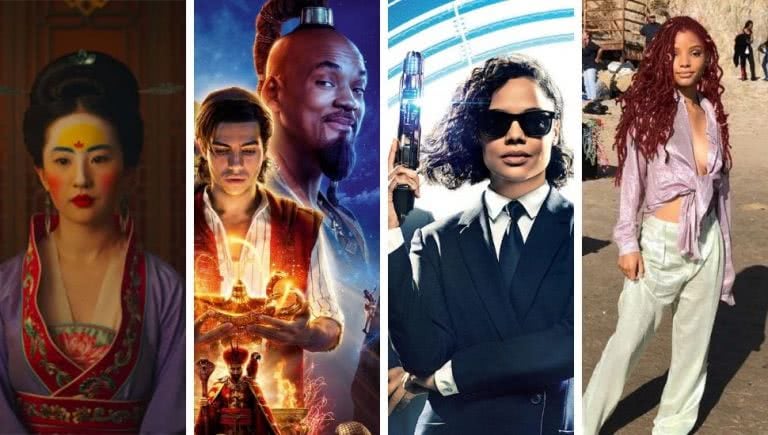Welcome to the age of reimaginings. Beauty and the Beast is now more than a cartoon children’s film; it’s a live-action production starring Harry Potter’s very own Emma Watson as its leading lady. Mulan and The Lion King are coming to a theatre near you, Will Smith is Aladdin’s new Genie, and The Little Mermaid is still caught between new-movie excitement and outdated racist debate.

Everywhere we turn, pop culture meets us with more recreations of old stories than introductions of new ones. Retro is cool in all its shapes and sizes – record players, polaroids, and Friends reruns – and while most of us are thrilled by the repeated prospect of a blast from a simpler past, our redo culture does beg the question of why. Why is the entertainment industry so caught up in reliving yesterdays?

With remakes and reimaginings punctuating almost every move of today’s most recent film and literature releases, it’s easy to question whether the world has simply run out of new ideas, but there’s a lot more at play.
One of the film industry’s top remakers is Disney. From Cinderella, to The Jungle Book to Dumbo, and many, many more, most of Disney’s live-action do-overs have achieved exactly the success Disney hoped for them.
In its opening (admittedly four-day) weekend alone, the 2019 version of Aladdin earned a whopping $112.7 million at the Box Office. 2017’s Beauty and Beast made a Box Office total of $504.04 million.
That’s not to mention all the stories – Alice Through The Looking Glass, Christopher Robin, Maleficent – that used prequels, sequels and interesting spins to reimagine old ideas instead of just recycling them.

So what drives the redo revolution?
Intellectual property has a lot to do with deciding which stories end up on our screens. Storylines, franchises and characters that a studio already owns come without the worry of acquisition costs.
In a world where capitalism is key, it’s simply cheaper, easier and often more profitable for studios to work with stories that already belong to them.
Then, there’s the additional concern of where the ideas actually come from. The Walt Disney Corporation relies heavily on fairytales and myths it once found in the public domain, with many of Disney’s most popular stories “borrowing” from Hans Christian Anderson or The Brothers Grimm. Maybe it really is the case that there are only so many old, salvageable ideas.
The beauty of a good remake is that it arrives in the consumer world with a ready-made audience. Remakes are born from the exhaust fumes of whatever came before them.
A remade film whose original grossed huge audiences can probably expect to draw in crowds again, a sign studios look to as the closest thing to a guarantee of success. Sure, ticket sales could still unexpectedly flop, but creators feel like they’re releasing something much more predictable than an entirely new story.
With recognisability comes cash flow
Average audiences don’t seem to be particularly enthusiastic about Hollywood repetition – “isn’t there anything new?” – but they do show up to see for themselves whether studios have succeeded in making version 2.0 shine. A remade movie has inbuilt marketing power because the world is already invested and interested, even if sometimes reluctantly, long before they even think about purchasing a ticket.
Audience nostalgia is arguably the most powerful force behind reboot victories, and studios make choices that capitalise on it. Renaissance Disney films were integral parts of most millennial childhoods. Now, millennials are working adults with change in their pockets.
They have the buying power it takes to take a film to the top. Disney selects movies that appeal to its paying millennial audience, and it remakes the films that had popular debuts when those audience members were young. Last time you went to see a Disney remake, wasn’t it predominantly 20 and 30-something adults lining up at the cinema?
The déjà vu film industry has plenty of people complaining about lack of originality, but there’s good reason for repetition. The stories our world has loved best seem ready for a second chance to shine. After all, isn’t it the mark of a good story when the world wants to hear it again?


































